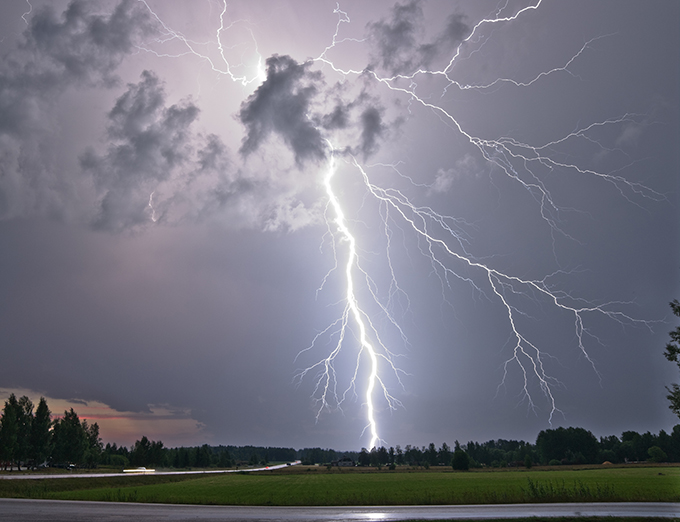Lightning Safety Awareness Week
June 18 – 24, 2023
National Lightning Safety Awareness Week started in 2001 in order to call attention to lightning being an underrated killer. Since then, U.S. lightning fatalities has dropped from about 55 per year to less than 30. This reduction in lightning fatalities is largely due to the greater awareness of lightning danger as well as people seeking safety when thunderstorms threaten.
Nowhere is safe outside when a thunderstorm is in the area. Get inside as soon as you hear thunder. Run to a substantial building or hard-topped metal vehicle as fast as you can. If you can’t get to a safe building or vehicle and you are caught outside with no safe shelter nearby, the following actions may reduce your risk:
- Avoid open areas. Don’t be the tallest object in the area
- Never shelter under an isolated tree, towers, or utility poles. Lightning tends to strike the taller objects in an area
- Stay away from metal objects that conduct electricity (such as barbed wire fences, power lines, or windmills). Metal does not attract lightning, but lightning can travel long distances through it
- If you are with a group of people, spread out. While this actually increases the chance that someone might get struck, it tends to prevent multiple casualties, and increases the chances that someone could help if a person is struck
- Immediately get off elevated areas such as hills, mountain ridges, or peaks
- Never lie flat on the ground. Crouch down in a ball-like position with your head tucked and hands over your ears so that you are down low with minimal contact with the ground
- Never use a cliff or rocky overhang for shelter
- Immediately get out of and away from ponds, lakes, and other bodies of water
- If you are out in the open water and a storm rolls in, return to shore immediately
- Avoid open vehicles such as convertibles, motorcycles, and golf carts
- Avoid open structures such as porches, gazebos, baseball dugouts, and sports arenas. These structures won’t protect you from lightning
- Stay away from open spaces such as golf courses, parks, playgrounds, ponds, lakes, swimming pools, and beaches. Seek shelter immediately
Cardiac arrest is the immediate cause of death for those who die. Lightning victims do not carry an electrical charge and may need first aid immediately. If someone is struck:
- Call 911
- If possible, move the victim to a safer place
- Give first aid. Begin CPR if you are trained
- Use an Automatic External Defibrillator if one is available. These units are lifesavers
- Don’t be a victim — lightning can strike twice!
Learn more about lightning safety at: www.weather.gov/lightning
and https://www.cdc.gov/.../features/lightning-safety/index.html
Credit: Weather.gov and cdc.gov
Learn more about HazTek Safety Consulting.
